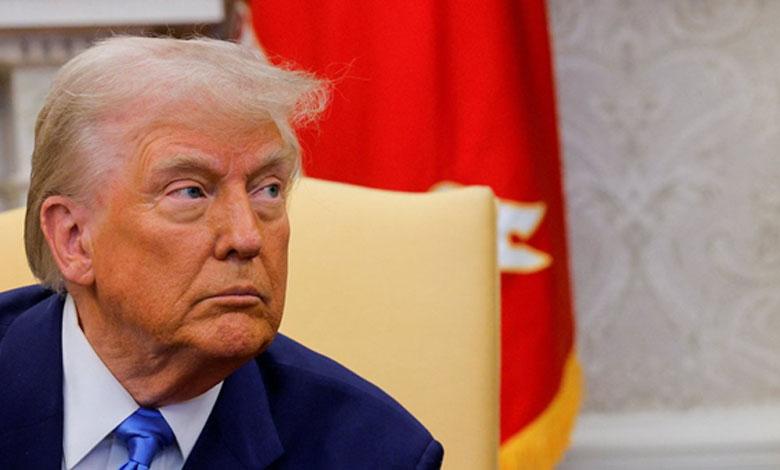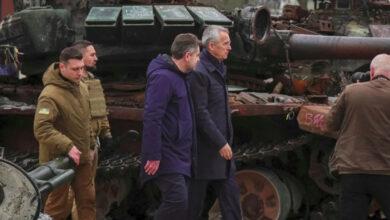Workshop on Trumpology: How Ukraine Will Not Lose in Donald Trump’s Game

Donald Trump is a person who cannot be ignored, especially if you are Ukrainian and you care about the future of your country. His behavior resembles a political thriller, where the main character constantly changes the rules of the game: today he flirts with dictators, tomorrow he threatens allies, and the day after tomorrow he pretends that nothing happened. His unpredictability and propensity for provocations make it necessary to carefully study his actions and methods in order to understand what to expect next and how it can affect Ukraine.
“Mr. President, do you still consider Zelensky a dictator?” – “I can’t believe that I said that. Next question”.
Another episode. During the meeting with Macron, Trump states that the military aid that Europe sent to Ukraine was in the form of a loan, and that Europe will get its money back. The French president interrupts and clarifies: “No, to be honest, we pay. We cover 60% of the total amount of assistance. This happens in the same way as in the USA: through loans, guarantees and grants. Trump grimaces, but does not lose his temper and tells reporters: “If you believe that, I don’t agree”.
And here is a saying worthy of long philosophical reflection: “The war will end soon or never” says Trump. This is a level of wisdom worthy of a Chinese Taoist philosopher, an ancient sophist, or someone who just really doesn’t want to give a straight answer.
Not to agree, but to win
Donald Trump is not a diplomat or a politician in the traditional sense. For him, negotiations are not a search for a compromise, but a game of survival, where the main thing is to win, not to agree. He skillfully pressures, manipulates and changes the rules of the game on the fly, always turning them to his advantage. For Trump, it does not matter who exactly is the other side of the negotiations – an ally, an opponent or even an entire state. Only one thing matters: who breaks first.
His outrageous statements, threats and blackmail are not just emotional impulsiveness, but a conscious strategy honed over the years. It is based on the principles that Trump detailed in the book “The Art of the Deal”. He wrote it at the age of 41, but this work is obviously still relevant for him, because his methods and approaches have not changed. Those who will deal with Trump in the future should carefully study this book to understand the logic of his actions and calculate the potential scenarios of the development of events.
This book is not a memoir in the classic sense of the genre, but rather a guide on how to make decisions, create crisis situations and emerge victorious from them. Donald Trump reveals many tactics and rules that helped him in business and served as tools in negotiations, trade wars and international politics.
However, his treatise is not about geopolitics. Trump never reveals his true political intentions. But at the same time it does not hide the methods. On the contrary, he describes them in detail.
To create a crisis in order to curb it later
Trump never enters the negotiation process as equals, he enters the process with leverage in his hands. If they are not there, he creates them himself – through provocations, information manipulation and playing on phobias. His approach is to artificially inflate the crisis and impose on the world the image of himself as the only savior capable of finding a way out.
Back in the 1970s, he demonstrated this method using the example of buying New York’s Commodore Hotel. The hotel was falling into disrepair, and Trump did not have the money to buy it. But instead of looking for investors, he decided to force the city government to give way. First, through the media, he formed a public belief that the building is a symbol of economic decline and a burden on the city. Then he issued an ultimatum: either the authorities give him the hotel with tax breaks, or leave the problem to themselves. Under pressure from political connections and public opinion, the city hall agreed to a 40-year tax holiday and a 99-year lease for a nominal sum. Trump renovated the building, rebranded it as the Grand Hyatt New York, and built a reputation as a successful developer without investing his own money in the scheme.
Today, he acts according to the same scenario when he solves the problem of the war in Ukraine. It does not offer a concrete solution, but creates the illusion that without it peace is impossible. His tactic is not so much to find a way out as to undermine confidence in the current strategy. He declares that supporting Ukraine is a failure, fuels instability, and emphasizes the weaknesses of allies. All this is intended to sow doubts among partners and make them agree to any decision he makes. At the same time, Trump himself does not disclose any details of his plans. He simply creates an atmosphere of pressure, blackmail and information chaos, in which he presents himself as a person who cannot do without.
Create chaos to force the opponent to make concessions
Negotiations for Trump are not a process of finding a compromise, but a struggle for victory. He does not consider concessions necessary and sees them as weakness. If the opponent does not agree to his terms, he increases the pressure until he gives up. His goal is not to convince the opponent, but to force him to find himself in such a situation where it is easier to agree than to continue the conflict.
Trump prefers not to act according to a defined plan, but on the contrary, to create chaos and confusion. He changes his positions, makes contradictory statements, the purpose of which is to cause nervousness among opponents and force them to independently look for solutions that are beneficial to him.
In the 1980s, Donald Trump conceived the grandiose project Television City — a huge real estate complex in Manhattan. To implement this idea, he had to enlist the support of the city authorities. But instead of seeking compromises, Trump followed his usual pattern: creating chaos, pressuring opponents and forcing them to play by his rules.
At first, Trump announced that he would build a 150-story tower — the tallest in the world. This idea caused strong resistance from the city administration and the public, but instead of making concessions, he started a tactical game that disoriented his opponents. One day he hinted that he was ready to reduce the height of the building, and the next he said that he planned to transfer the plot to Japanese investors. His opponents could not predict his next move, but they knew perfectly well: he would not back down until he got his way.
Trump did not try to convince – he forced capitulation. The city administration was afraid that if they did not begin to negotiate, Trump would find a way to turn the deal behind their backs and confront them with a fact that would be unacceptable to them. As a result, Trump “squeezed” out of them profitable concessions, found buyers and established his reputation as an uncompromising negotiator. The project in its original form was never implemented, but it did not matter – Trump got what he wanted. It wasn’t a negotiation, it was a game of survival in which he forced his opponents to play by his rules.
Trump has used a similar strategy in trade talks with China, where uncertainty and constantly changing terms have forced Beijing to agree to terms to reduce chaos.
Trump is now using similar tactics with regard to Ukraine. He has been critical of the financial support that the US provides to Ukraine, but has not made it clear whether he is ready to end the aid entirely. He criticizes the Biden administration, shames the Europeans, calls Zelensky a dictator, but offers nothing concrete in return. The shadow of possible change creates uncertainty among allies, forcing them to focus not on victory, but on how to avoid losses. He does not give an answer, only creates a situation where others begin to think how not to lose.
Create uncertainty that is difficult to tolerate
Donald Trump has always viewed negotiations not as a search for a compromise, but as a game of survival in which the main thing is to win at any cost. His tactics are based on pressure, manipulation and creating situations where opponents are forced to concede.
In 1981, he purchased the Bonwit Teller building, which stood in the way of the construction of Trump Tower. Instead of making honest deals with the residents, he made their lives unbearable: he cut back on services, cut off investments, and when that wasn’t enough, threatened to fill the house with homeless people. Eventually the people gave up and he got his.
A similar scenario was repeated in 1987 with the Trump Taj Mahal – a grandiose casino that attracted hundreds of contractors. They did their job, but after the bankruptcy of the project, they were left without money. Trump avoided losses and small companies went bankrupt. He took what he could and left behind ruins.
Today, he applies this approach to the war in Ukraine. He does not directly talk about ending support, but creates an atmosphere of uncertainty, making allies doubt. He uses trust as long as it’s beneficial and then just walks away regardless of the consequences. As in business, as in politics, his strategy is the same: to drive opponents into a dead end and get the most for himself, leaving others to deal with the chaos.
You can’t lose to Ukraine: how to beat Trump on his own field
Donald Trump sees negotiations as a struggle for dominance, not as a compromise. His method is pressure, chaos and manipulation of opponents’ fears. He doesn’t follow the rules, but changes them on the fly, using threats and vague promises to create the illusion of control.
His goal is not the deal itself, but the feeling of victory. He does not recognize moral obligations and easily changes his position if it is advantageous. The agreement with him is never final – it is only part of the big game.
Ukraine should act cold-bloodedly, not reacting to his provocations. He perceives concessions as weakness, so it is important to follow a clear strategy and count on the broad support of the American elite, not just one person. It can be outplayed if it is shown that Ukraine is strong, beneficial to the USA and not amenable to manipulation.
Trump respects those who stand firm. If he sees that it will not be possible to break the opponent, he retreats. It changes course when it encounters an obstacle, but does not go into a frontal attack. Ukraine must become such an obstacle for him – firm, unshakable and dangerous for those who will try to dictate their terms to it.





